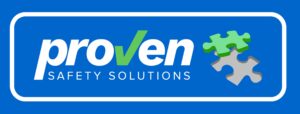Managing employee performance is a crucial aspect of organisational success. The most important part of managing people is establishing an understanding of what they are willing and able to do and why. If you know your people well then you can support and lead them in a way which garners buy-in and engagement.
If you do not, then you may be the reason why they are disengaged. There are several common processes and approaches that companies use to effectively manage employee performance, these include:
Goal Setting and Alignment
This involves setting clear and specific performance goals for each employee that are aligned with the organization’s overall objectives. These goals provide a roadmap for employees to follow and help in tracking their progress.
Organisations use key performance indicators (KPIs) to measure specific aspects of performance. These metrics help employees understand how their work contributes to broader organizational goals.
Performance Appraisals
Regular performance reviews or appraisals allow managers and employees to discuss accomplishments, areas for improvement, and development opportunities. These conversations provide a platform for feedback, goal adjustment, and addressing concerns.
Feedback and Coaching
Continuous feedback and coaching sessions provide employees with timely input on their performance. Managers can offer guidance, highlight strengths, and suggest areas for improvement. This ongoing dialogue helps employees grow and excel.
360-Degree Feedback
This process gathers feedback from multiple sources, including managers, peers, subordinates, and even external stakeholders. This comprehensive feedback can provide a more well-rounded view of an employee’s performance.
Development Plans
Individual development plans outline the skills and competencies employees need to develop to advance in their careers. These plans may involve training, workshops, mentoring, and job rotations.
In cases of underperformance, PIPs are used to outline specific areas of improvement, along with a timeline and support mechanisms. They are designed to help struggling employees get back on track.
Recognition and Rewards
Recognising and rewarding exceptional performance reinforces positive behaviour and motivates employees. This can include monetary rewards, promotions, public recognition, and other incentives.
Succession Planning
Identifying potential future leaders within the organization and grooming them for higher roles is an essential part of performance management. This ensures a steady pipeline of talent for critical positions.
Training and Development
Offering training and development opportunities helps employees acquire new skills and stay up-to-date with industry trends, enhancing their performance and value to the organization. Regular conversations about an employee’s career aspirations, growth opportunities, and potential career paths within the organisation help align individual goals with organisational needs.
Performance Recognition Programs
These programs celebrate exceptional achievements and contributions, fostering a culture of excellence and encouraging healthy competition among employees.
It’s important to note that different organisations may emphasize different aspects of these processes based on their industry, company culture, and specific goals. Effective performance management involves a balance of these processes, tailored to the organization’s unique needs.
Proven Safety Solutions save time and money!
For specific, tailored advice, or support for your organisation, contact Proven Safety Solutions today on 0400 023 404 to discuss and improve your confidential circumstances. If you have any specific aspects, you’d like more information on or if you have further questions, reach out by clicking here!

This blog has been written with the aid of software, including search engines, and writing tools, then checked by our team prior to release. It is general in nature.



